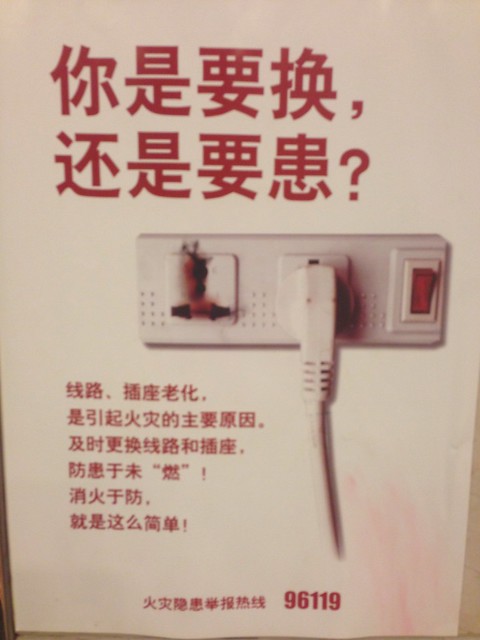Replace or Hazard?
Here’s a Chinese public service poster that uses a pun to get its point across:
The big text reads:
> 你是要换, [Do you want to replace it,]
> 还是要患? [or do you want a (safety) hazard?]
So the key here is that “huàn” can be both the verb 换, meaning “to replace,” as well as the noun 患, which means “hazard” (in the “safety hazard” sense). You often see it in the word 隐患, literally “hidden danger,” referring to potential safety hazards. (隐患 actually appears at the very bottom of the notice.)
The question uses the standard “A or B” 还是 question form.
(Sharp-eyed advanced students will notice another pun in the smaller print, involving the phrase 防患于未然 and the character 燃.)


And it all rhymes too. Clever.
Huan is represented by two different characters in the ad.
And so the verb and the noun are written differently?
Yes, totally different words with different characters (just the same pronunciation).
This is the first time I’ve encountered the phrase 防患于未然. I think it’s a cool-sounding phrase. From looking at usage examples I get the idea it is somewhat of a set phrase, with occasional variations. Another example of how I keep learning new things from what seem to be the simplest of Chinese writings.
This is a classic example of how terse Chinese can be. So few characters, so much meaning.